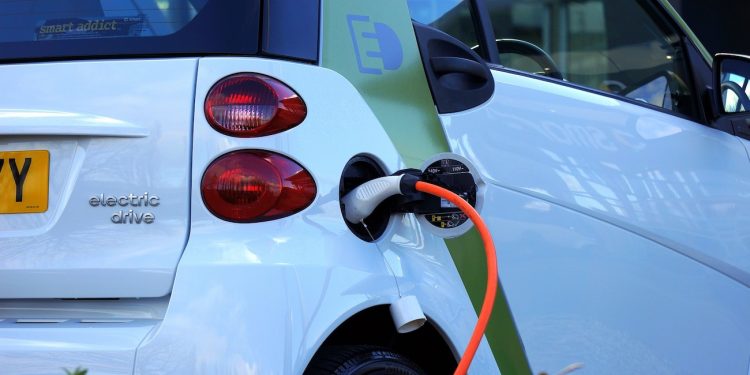Electric vehicles (EVs) run on electricity rather than gasoline or fuel. EVs use rechargeable batteries to store energy, which powers an electric motor that propels the vehicle. They can be charged from an external power source, such as a charging station or a standard electrical outlet. EVs produce zero emissions and are considered to be more environmentally friendly than other fuel-powered vehicles.
The electric vehicle is a cutting-edge innovation in the auto industry. However, while some manufacturers have built their whole lineup of cars around eco-friendly electric power, others have hybrid options that can run on electricity or gas.
The electric vehicle is rapidly evolving, more people are showing interest in EVs. In America, electric vehicle sales have risen by more than 40% yearly since 2016.
Carbon emissions from automobiles are released into the atmosphere, contributing to air pollution and the buildup of greenhouse gases. Purchasing an electric vehicle is a major advance for the health of our planet. You may show concern for the environment and get a financial reward by buying an electric vehicle.
Even though you may spend more money on your car overall, the benefits outweigh the costs. While investing in an electric vehicle may seem like a no-brainer, there are still two sides.
Benefits of Electric Vehicles
Electric vehicles have several benefits over traditional fuel-powered cars. Apart from the environmental perspective, EVs can save consumers a lot of money as governments offer incentives and tax benefits to encourage people to switch to electric vehicles. Below are the top 8 benefits of having electric cars over fuel-powered ones.
1. Low Maintainance
Electric automobiles don’t need to grease engines, maintain them, or do other gas engine-related activities. No more pricey engine work. Thus, car upkeep has decreased. It doesn’t need frequent service like a gasoline-powered car.
EVs are cheaper to operate than gasoline-powered vehicles because electricity is generally cheaper than gasoline, and the cost of charging an EV is significantly less than the cost of filling up a gas tank.
EV’s have fewer moving parts than gasoline-powered vehicles and require less maintenance.
2. No Gas is Required.
Most electric vehicles cost Rs 1.2 to 1.5 per kilometer, which is much cheaper than gasoline.
Your electricity charges electric cars, so you never need gas. Fuel costs are at an all-time high, making fuel-powered vehicles expensive.
3. Cost effective
These vehicles are powered cheaply, and many new ones provide government rebates for turning green. So electric cars also save money.
Before, electric cars were expensive. Technology has reduced cost and upkeep. In addition, mass production and tax incentives reduced battery costs, making it more cost-effective. Ask a tax expert about state or federal tax credits.
4. Reputation
EVs are becoming mainstream. According to Wikipedia, it is roughly three times more efficient than internal combustion engines. Popularity brings new, unusual cars to market, giving you more options.
5. Environment friendly
EVs produce significantly less emissions than gasoline-powered vehicles, which can help to improve air quality and reduce the impact of transportation on the environment.
Electric vehicles are greener. Electric cars are eco-friendly. Since it uses clean energy, it does not release hazardous gases or smoke. Since gas-powered hybrids emit, they’re better. You’ll help the environment.
6. Safely
Electric automobiles are tested like gas-powered autos. Electric cars are safer because their lower center of gravity makes them more stable in crashes.
Airbags and battery power shut off in an accident. This can protect you and your carmates from a major injury. They are even less likely to detonate without gasoline or gas.
7. Noise reduction
EVs are much quieter than gasoline-powered vehicles, which can reduce noise pollution.
Electric automobiles reduce noise pollution. Electric motors can accelerate smoothly over large distances. Many electric car owners save tens of thousands of dollars a year.
8. Battery Cost/Life
Electric cars need batteries. Lithium batteries, which power most electric vehicles, are getting cheaper. Lithium-ion battery cells should last 300–500 cycles. Good batteries last ten years. These batteries should become more affordable as technology advances.

Conclusion
Electric car features are constantly being improved to keep up with the ever-evolving state of technology. Generation Z will go electric car nuts over these perks.
Also Read: FedEx India deploys TATA EVs to achieve the goal of zero-emissions




















